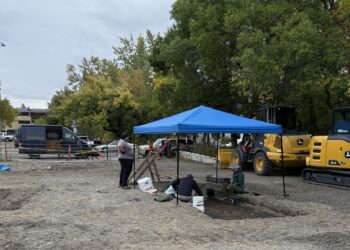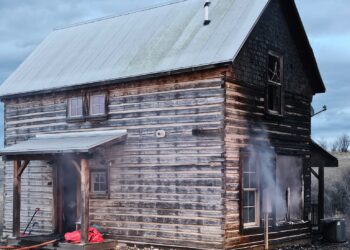By Joseph T. O’Connor Explore Big Sky Managing Editor
BIG SKY – The Big Sky community has for years been searching for tools to address a shortage of affordable housing options. A bill presented in the 2015 Montana Legislature could be one for the toolbox, provided it meets a number of stipulations.
House Bill 262, called “Revise resort tax laws,” would amend state law to allow areas that collect resort tax to raise the levy up to 1 percent if the additional revenue goes toward “historic preservation or workforce housing.” The state currently caps the resort tax levy on luxury items at 3 percent.
For the bill to apply to Big Sky, it must be first amended and then approved in a Legislature that meets once every two years.
Rep. Kerry White (R-Bozeman) first introduced HB 262 to the Montana House of Representatives on Jan. 20, as a funding source solely for historic preservation. The bill was rewritten to include “workforce housing” and “up to 1 percent” on Feb. 3 after Big Sky local Kevin Germain requested the change in front of the House Taxation Committee.
Rep. White was unable to be reached for comment.
Germain, the Vice President of Planning and Development for Lone Mountain Land Company, is also a member of the Big Sky Chamber of Commerce’s housing subcommittee, the group spearheading the area’s workforce housing issues.
“I’d heard mention that [Rep. White] was working on it, but I never saw a copy of the bill until two weeks ago,” Germain said in an interview on Feb. 16.
HB 262 ultimately passed the House on Feb. 13 and was referred to the Senate three days later.
In response to a short lead time, the Big Sky Resort Area District board of directors held a public meeting on Feb. 18 to discuss whether further amendments were needed to make the bill applicable to Big Sky, and if the board would authorize their attorney, Mona Jamison, to suggest amendments to the bill.
Even if HB 262 passes the Legislature and even if amendments are made, the housing crisis in Big Sky will need further attention, according to David O’Connor, President of the Big Sky Chamber of Commerce.
“It’s no silver bullet,” O’Connor said after the board’s meeting. “But it could be a way to spread the burden [of cost].”
The board carried two motions at the meeting, the first authorizing Jamison to suggest bill amendments to make it applicable in Big Sky; the second allowing her up to $1,500 of resort tax money to lobby for these amendments in the Legislature.
At the heart of the matter is the terminology used in the bill.
As HB 262 currently sits, according to Jamison, it may not apply to Big Sky since the bill refers to unincorporated “resort areas” and incorporated “resort communities.” Big Sky is an unincorporated “resort area district,” a term that does not appear in the current bill. As well, HB 262 may not apply to areas that already have a resort tax levy in place.
“No matter how many times I read the bill, it only applies to an ‘area’ or a ‘community’ that has not instituted the resort tax,” said Jamison who called in to the meeting from Helena.
The bill may not be heard in the Senate until sometime in March, according to Jamison. But with a Legislative session that only meets every other year, O’Connor says the community may not be able to wait that long.
“My feeling was if that train’s leaving the station, we better be on it,” he said.
Ultimately, if HB 262 is approved and meets the stipulations that apply to Big Sky, voters will have the final say as to whether or not this tool will find its way into the toolbox.













